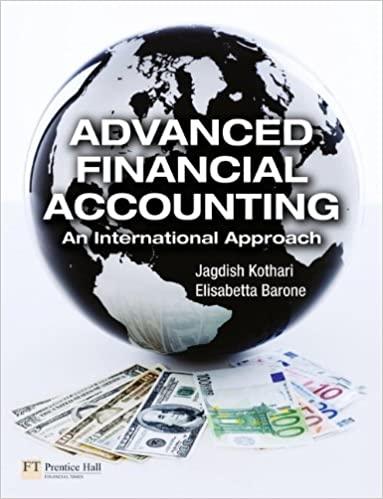(a) Entities A and B decide to manufacture products jointly in a new territory. Entity C will...
Question:
(a) Entities A and B decide to manufacture products jointly in a new territory. Entity C will undertake the manufacturing process in this territory using components supplied by entity A and entity B. Entity A and entity B each own SO per cent of the voting rights in entity C and are entitled to 50 per ‘cent of any dividends and 50 per cent of the assets in a liquidation.
Entity C’s articles of association state that its operations should be conducted in accordance with an annual business plan approved unanimously by the shareholders. The shareholders appoint six directors in proportion to their shareholdings to manage entity C’s activities. Therefore, entity A and entity B both have three directors on the board. The chairman of the board rotates between entity A and entity B. The articles set out the types of strategic decisions that require the unanimous consent of all the directors on the board which include, amongst other things, approval of the venture’s business plan. The articles of association do not provide the chairman with a casting vote.
(b) Now suppose that entity A has an option to buy entity B’s shares in entity C. The option may be exercised by entity A at any time in the event that entities A and B do not agree on a strategic decision. The option price is not deliberately set so high that the possibility of exercise is remote.
Does control exist in situation (a) and (b)?
Step by Step Answer:

Advanced Financial Accounting An International Approach
ISBN: 9780273712749
1st Edition
Authors: Jagdish Kothari, Elisabetta Barone





